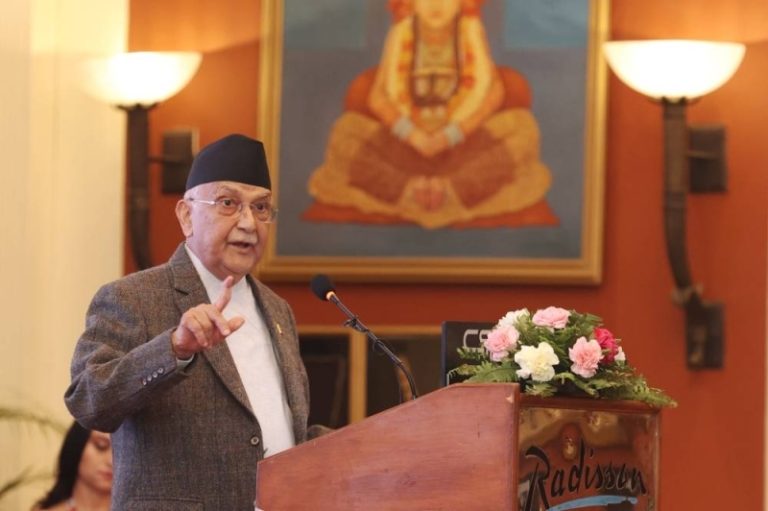Nepal’s Prime Minister KP Sharma Oli has issued a stern warning against those responsible for the violent pro-monarchy protests that shook the country. Speaking at the House of Representatives on Monday, Oli said that legal actions would be taken against all individuals involved, including former king Gyanendra Shah, if found guilty of inciting violence.
Former King Accused of Incitement
According to local media reports, the Prime Minister accused Shah of encouraging the protests through a video statement. He emphasized that no one, regardless of their status, would be exempt from punishment.
“Shouldn’t those who aspire to reclaim the throne publicly state their position on the protest and its outcomes?” Oli asked in Parliament. “He (ex-king) will not be granted impunity. Those attempting to overthrow the current system and reinstate the monarchy must clarify their stance on the events of March 28. The perpetrators of these horrific acts must face stringent legal action.”
Political Tensions in Parliament
Oli’s statement immediately sparked backlash from lawmakers of the Rastriya Prajatantra Party (RPP), a pro-monarchy group. Party leader Rajendra Lingden strongly criticized the Prime Minister’s stance, arguing that the country’s republican system has led to increasing corruption since the monarchy’s abolition in 2008.
“Were only protesters responsible for the riots? Was it not the government’s duty to take the situation under control?” Lingden asked in Parliament. He also accused security forces of mishandling the situation by using expired tear gas, which further escalated tensions.
RPP lawmakers protested inside the Parliament, calling for a judicial commission to investigate the incident at Tinkune in Kathmandu. Lingden insisted that public sentiment must be acknowledged and warned that if the people demanded a return to the monarchy, the republican system could be overturned.
Arrests and Legal Proceedings
Authorities have already taken action against key members of the RPP. Senior vice president Rabindra Mishra and General Secretary Dhawal Sumsher Rana were arrested for their involvement in the protests. The Kathmandu District Court (KDC) charged them with treason and extended their remand until Tuesday.
The police have also detained around 100 individuals connected to the violent protests. However, only 42 have been formally charged in court, while investigations continue, reports The Himalayan.
Clashes in Kathmandu
The March 28 pro-monarchy demonstration in Kathmandu turned violent, leaving hundreds injured in clashes between security personnel and protesters. The demonstrators demanded the restoration of Nepal’s monarchy, which was abolished in 2008. The situation worsened when security forces used force to disperse the crowd, leading to a chaotic scene in several parts of the capital city.
The government claims that the violence was premeditated and that those responsible will face the consequences. “The government will not tolerate attempts to create unrest in the country,” said a senior official.
Growing Political Unrest
The political divide in Nepal appears to be widening as pro-monarchy groups continue to challenge the current republican system. Analysts believe that these protests reflect a growing dissatisfaction with the government’s handling of political and economic issues.
With tensions running high, the government is under pressure to take decisive action. Meanwhile, opposition parties and royalist groups are calling for a review of the country’s governance structure.


